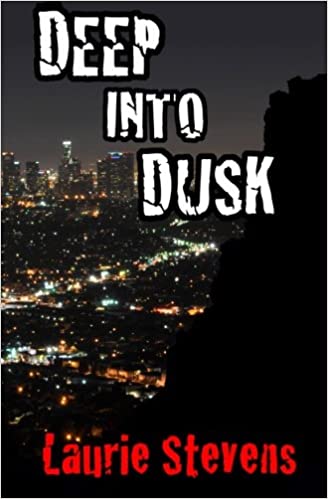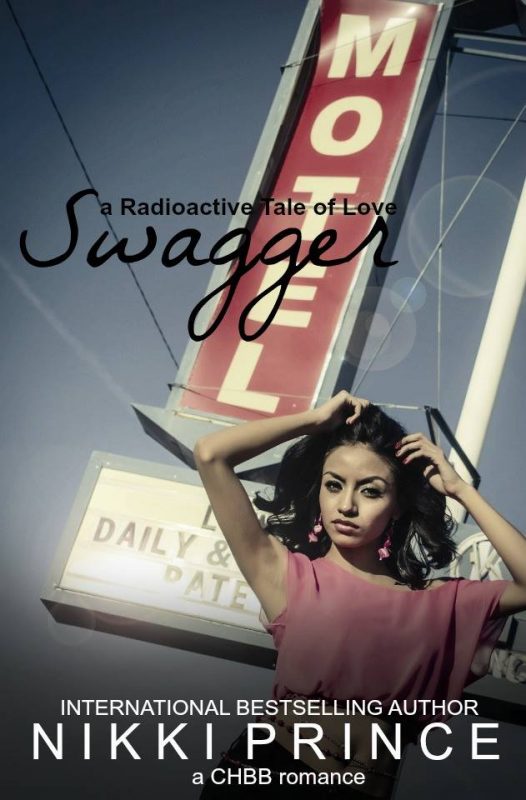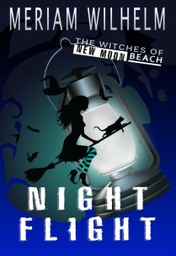Say What!?
September 19, 2017 by Jenny Jensen in category On writing . . . by Jenny Jensen tagged as editing, reading, Revising, writing Every writer has to be an editor to some degree. Reading and revising what you’ve written is the first line of attack; the skirmish before an editor gets unbiased hands on the work. What are you looking for when you edit your own work? Search and destroy all worm words, cut down on adverbs and adjectives, delete extraneous dialog tags, trim unneeded prose; there is a ton of excellent advise on the web to help with a self-edit. But can it help you catch the muddle?
Every writer has to be an editor to some degree. Reading and revising what you’ve written is the first line of attack; the skirmish before an editor gets unbiased hands on the work. What are you looking for when you edit your own work? Search and destroy all worm words, cut down on adverbs and adjectives, delete extraneous dialog tags, trim unneeded prose; there is a ton of excellent advise on the web to help with a self-edit. But can it help you catch the muddle?
When you are on that heady writing roll where the words just flow and the story unfolds in your mind like a film then you write what you’re seeing — it’s a grand feeling. Just be sure you wrote what you meant to convey. When you reread those words you’re fixed on the meaning you intended. When an editor reads those same words they… just might laugh. Ah the consequence of the unintended.
I’ve encountered this muddle most where eyes are involved. Probably because it’s said that the eyes are windows to the soul. We’ve imbued two innocent organs with a near paranormal ability to transmit intent. And I think they can. The face is expressive but the eyes really can appear shifty, or soulful or hurt. And if you’ve ever really pissed your mom off, then you know that eyes can harden in anger. But there’s a thin line between expressive eyes and hilarious word play.
He lied. His eyes gave him away, gaze dropping fast to the floor and remaining there. Well, pick that gaze up for heavens sake. It’s dusty down there. But I get it and it works beautifully in the context of the scene, if it just didn’t conjure an image that makes me chuckle. We went with: He lied. The eyes gave him away. He couldn’t look at us. It was a great thriller and the book did well.
A different author; the scene is tense, the captive character needs to scope out the situation, there has to be a way out. Her eyeballs skittered across the room. Oh my! That hurts — eyeballs rolling away like errant marbles. It isn’t pretty. Please, let’s try: She scanned the room frantically…” It fit the moment and the book sold admirably.
OK, maybe the eyeball fix wasn’t the deciding sales factor — each of these authors is very, very good — but, in the end, neither provided unintended laughter. When you self-edit pay heed to what you’ve written. Do the words convey what you actually intended? Be vigilant of the muddle. No one wants to step on a skittering eyeball.
 With a BA in Anthropology and English I pursued a career in advertising and writing and segued into developmental editing. It was a great choice for me. I love the process of creating and am privileged to be part of that process for so many great voices — voices both seasoned and new.
With a BA in Anthropology and English I pursued a career in advertising and writing and segued into developmental editing. It was a great choice for me. I love the process of creating and am privileged to be part of that process for so many great voices — voices both seasoned and new.
I’ve worked on nearly 400 books over 20 years, books by noted authors published by New York houses including Penguin, Kensington, Pentacle and Zebra as well as with Indie bestsellers and Amazon dynamos. From Air Force manuals and marketing materials to memoirs, thrillers, sci fi and romance, my services range from copyediting to developmental coaching.
Having worked in advertising and marketing, I am always cognizant of the marketplace in which the author’s work will be seen. I coach for content and style with that knowledge in mind in order to maximize sales and/or educational potential. My objective is to help the author’s material stand out from an ever more crowded and competitive field.
Stories My Mother Told Me
September 14, 2017 by Rebecca Forster in category Writing tagged as Craft, experience, Family, life, mother, writingMy mother will be 93 years old on September 21. She travels with me, reads all my books and is my best friend. I wrote this blog some time ago, but I want to share it again because it deserve repeating that she is an amazing woman. I am so proud of my mom. Happy birthday, mom.
_________

Mom at 92
My parents made a pact to stand on every continent in the world. When my dad passed away, my mother went to the Antarctic for both of them. That’s when I figured there was a lot I didn’t know about mom.
When she returned with a bright orange jacket that she got ‘for free’ (don’t count the cost of the cruise) she had lots of stories to tell. Yet, when the excitement of the trip wore off, we both had the sense that we were still standing on a pitching deck with no way to get to calm seas. A big piece of the puzzle – my dad – was missing.
“Write your memoir,” I said.
“My life wasn’t interesting,” she answered.
But the idea must have taken hold. Not long after this conversation, she called. She was done with her memoir.
“Impressive,” I mused.
It took me months to write a novel and she finished hers in a week. Then I saw why. Her ‘manuscript’ was five pages long and she was eighty-five years old. There had to be more.
And so began a year of weekend sleep-overs as we poured over photographs for inspiration. She had twenty beautifully documented photo albums, a box with pictures when cameras were still a new fangled thing.
There was mom wearing waist-length braids and Mary Jane shoes standing in the Germany village she called home.
She was a teenager in the U.S. while war raged in Europe, catching up the grandmother she had lived with, cousins and friends.
There was my mom posing in a swimsuit she bought with the dollar she found on the street.
Mom in her twenty-five dollar bridal gown perched in the back of a hay wagon beside my father, a skinny, wide-eyed farm boy who would become a doctor.
Mom with one child. Two. Three. Five. Six of us all together. Dark haired and big eyed we were her clones dressed in beautiful, homemade clothes. I remember going to sleep to the sound of her sewing machine.
And there were words! I bribed my mother with promises of Taco Bell feasts if she gave me details. Funny, what came to her mind.
To keep body and soul together when my father was in med school, he was a professional mourner and bussed tables for a wealthy fraternity. My mom worked in a medical lab where the unchecked radiation caused her to lose her first baby. They ate lab rabbits that had given their all for pregnancy tests. They were in love and happy and didn’t know they were poor. But St. Louis was cold, she remembered, and they couldn’t afford winter coats. Still, she insisted, they weren’t poor. I listened and knew they were happy.
She typed, I edited; I typed, she talked. My youngest brother almost died when he was 10. She didn’t cry for a long while; not until she knew he would live. The captain of the ship that took her back to Germany was kind. She dreamed of becoming a missionary doctor. In 1954, she had two toddlers (me and my brother) and another baby on the way when she and dad drove to Fairbanks, Alaska where he would serve his residency at the pleasure of the U.S. Air Force. Her favorite outfit was a suit with a white collar. She loved her long hair rolled at her neck in the forties. In the fifties she made a black dress with rhinestone straps and her hair was bobbed. In the sixties, she made palazzo pants and sported a short bouffant. She looked like a movie star in her homemade clothes. I wanted to grow up to be as glamorous as she was. She still thought she wasn’t interesting.
Mom wrote the forward to her memoir herself. It began:
A great sense of loneliness fills the house as twilight approaches. In the silence, I can almost hear the voices of my grown children as they recall their childhood years, the laughter of grandchildren and the quiet conversations of friends who have gathered here in years past, echoing through the empty rooms.
You see, she really had no need of my help as a writer.
We had seven copies printed with a beautiful cover of a sunset. She called the book In The Twilight of My Life and would not be swayed to change it. Mom thought it perfect and not the least depressing. It was, she laughed, exactly right. It was the laugh that made it right. She gave my brothers and sisters a copy for Christmas. My older brother had tears in his eyes. Everyone exclaimed: “I never knew that”.
Now I have a book more treasured than any I have written. I learned a lot about my mom and I realized why I create fictional women of courage and conviction, strength and curiosity, intelligence and, most of all, spirit. It’s because, all this time, I’ve been writing about my mother.
September Featured Author: Geralyn Corcillo
September 14, 2017 by marianne h donley in category Featured Author tagged as Geralyn Corcillo, romantic comedy, September Featured AuthorBurls
September 13, 2017 by Sally Paradysz in category From a Cabin in the Woods by Members of Bethlehem Writers Group tagged as imperfect, intriguing, natureThis slideshow requires JavaScript.
On the outskirts of the area where I split wood stands a cherry tree. It isn’t huge, but it has at least two burls on it that I can see. I find burls extremely interesting, and at times I can’t stop staring at them. It is a living thing, and something that resembles sap drips from all over it and down onto the forest floor. I have one that I split open years ago, and it is gorgeous on the inside.
Actually, burls are a valuable wood product for artists, furniture makers, and wood sculptors. Some of the most exotic salad bowls and serving bowls I have ever seen are made from burls just like these.
From my book-lined cabin in the woods beside my home, I can see many of these burls standing out proudly from the trees on my land. The sap seems to draw the sunlight to them, and their glow is intriguing. It is yet another example of what can be hidden inside a shell or a human being. Something exquisite emerges once it is opened to be examined. This author of imperfect words wishes that once we open ourselves up to the world, we can walk away with hope and new life passions that will change our life forever……
Sal

Sally Paradysz writes from a book-lined cabin in the woods beside the home she built from scratch. She is an ordained minister of the Assembly of the Word, founded in 1975. For two decades, she has provided spiritual counseling and ministerial assistance. Sally has completed undergraduate and graduate courses in business and journalism. She took courses at NOVA, and served as a hotline, hospital, and police interview volunteer in Bucks County, PA. She is definitely owned by her two Maine Coon cats, Kiva and Kodi.
You can read more from Sally on Facebook
Her book is available here:
FACE your FEAR
September 12, 2017 by Denise M. Colby in category The Writing Journey by Denise Colby tagged as Analytical Response, Fear, writer's block
What’s your biggest fear as a writer? For some of you, it might be putting the ideas swirling in your mind into actual words on the paper. For others, it might be pitching your manuscript or creating social media posts. Whatever it is, we all have them. And all that fear causes anxiety, worry, tension, panic, despair…you get the idea (we all write characters who struggle with these, right?). If you’re anything like me, my fears prevent me from accomplishing or completing some of my writing goals.
So, what do we do about this? How do we over come these fears?
First, you must identify it. Write it down. What’s your biggest fear? Stare it straight in the face. It’s not so scary once you look at it written out.
Second, define it a bit more. Add another layer of thought to it. What specifically about it makes you have fear. Is it the entire thing or just a part or two. And then ask yourself, why is it scary for you?
Third, debunk it. Discover counter arguments to your fear. Find out from other authors if they have experienced the same fear. Soon you might realize this is a normal reaction to the process and you might even learn ideas to overcome your fear.
Fourth, push through it. Do one task which causes fear. Ask yourself —what’s the worst that can happen? Find a writing partner who can encourage you and help challenge you to follow through. Note: You may have to do this part more than once.
My Greatest Fear
I decided to take a 4 x 6 index card and ask myself what my greatest fear was. What I wrote surprised me. In my mind, I had a general overall fear, but when I wrote it down I saw something more specific.
I don’t always sit my butt in the chair and on the surface I tell myself it’s because I don’t have time, but deep down I’m seeing now it might be because I’m afraid. What if I sit down for an hour session and it isn’t any better than when I started? What if I only edit through a 600 word block in that time? I will never finish. And so on and so on….
So, for me, my fear is getting it wrong. I want to hit the mark and soar with my writing. I’ve entered a lot of contests and shown my work, and although I get encouraging feedback, I’m still missing the mark. And I’m afraid it will always be that way.
So for step 2, I had to ask myself what specifically about getting it wrong meant. Was it failure? Afraid of what people think?
I don’t think I’m afraid of what people think so much (although I want people to like my work), as I am wondering if what I write will ever be ready to publish. I have lots of ideas, but when I write them down, they don’t sound as great as I thought they were. And I’m afraid no matter how much time I put in, I may never achieve my goal of getting published.
All this fear and doubt affects what I do day to day. How I spend my time. My mental state when I’m writing. And I don’t want it to.
So, I need to go to Step #3 and fight back. Who decides if it’s wrong anyway? And how do they decide? Look at how many published authors sent in their manuscript numerous times before it was accepted. It’s just part of the process.
See, by writing it down, I can find counter arguments to what my fear is telling me. And it helps calm down the panic that wants to creep in. It keeps me from letting my fear stop me completely.
Step #4 says to do something to face your fear, so I need to take risks and not be so afraid of doing so. Write a blog post even if it’s not perfect and post it. Write a new scene and show someone. Get feedback and keep trying. If I don’t do any of these things, I let the fear win. There is always going to be more I can add, more to improve, so why am I waiting to hit send? Waiting doesn’t do anything but feed my fear.
And fear keeps me from my goals. Something none of us wants.
For fun, I came up with this acronym. As we know, fear is an emotional response. We need to stop reacting to our fear and work on ways to work through it. So, FACE your FEAR. Fix And Change Every Fear from Emotional to an Analytical Response.
All so we can meet our goals. We all have goals we want to achieve, right?
So take some time and write down what your fear is and then face it. You just might work through that writer’s block you’ve been struggling with.
Hugs & Blessings,
Denise

Although new to the writing fiction world, Denise Colby has over 20+ years experience in marketing, creating different forms of content and copy for promotional materials. Taking the lessons learned from creating her own author brand Denise M. Colby, Denise enjoys sharing her combined knowledge with other authors.
If you are interested in a marketing evaluation and would like help in developing a strategy for your author brand you can find out more here http://denisemcolby.com/marketing-for-authors/
Affiliate Links
A Slice of Orange is an affiliate with some of the booksellers listed on this website, including Barnes & Nobel, Books A Million, iBooks, Kobo, and Smashwords. This means A Slice of Orange may earn a small advertising fee from sales made through the links used on this website. There are reminders of these affiliate links on the pages for individual books.
Search A Slice of Orange
Find a Column
Archives
Featured Books
DEEP INTO DUSK
In the second pulse-pounding thriller in the series, Detective Gabriel McRay is once again forced to face his inner demons
More info →A SOLDIER’S ITALIAN CHRISTMAS
A soldier and a nun discover forbidden love in war-torn Italy during the winter of 1943.
More info →NIGHT FLIGHT
Olivia Merriman’s witchy wiring has all gone haywire and if she doesn’t get it under control soon she’s going to lose her boyfriend, her magic and a whole lot more!
More info →Newsletter
Contributing Authors
Search A Slice of Orange
Find a Column
Archives
Authors in the Bookstore
- A. E. Decker
- A. J. Scudiere
- A.J. Sidransky
- Abby Collette
- Alanna Lucus
- Albert Marrin
- Alice Duncan
- Alina K. Field
- Alison Green Myers
- Andi Lawrencovna
- Andrew C Raiford
- Angela Pryce
- Aviva Vaughn
- Barbara Ankrum
- Bethlehem Writers Group, LLC
- Carol L. Wright
- Celeste Barclay
- Christina Alexandra
- Christopher D. Ochs
- Claire Davon
- Claire Naden
- Courtnee Turner Hoyle
- Courtney Annicchiarico
- D. Lieber
- Daniel V. Meier Jr.
- Debra Dixon
- Debra H. Goldstein
- Debra Holland
- Dee Ann Palmer
- Denise M. Colby
- Diane Benefiel
- Diane Sismour
- Dianna Sinovic
- DT Krippene
- E.B. Dawson
- Emilie Dallaire
- Emily Brightwell
- Emily PW Murphy
- Fae Rowen
- Faith L. Justice
- Frances Amati
- Geralyn Corcillo
- Glynnis Campbell
- Greg Jolley
- H. O. Charles
- Jaclyn Roché
- Jacqueline Diamond
- Janet Lynn and Will Zeilinger
- Jaya Mehta
- Jeff Baird
- Jenna Barwin
- Jenne Kern
- Jennifer D. Bokal
- Jennifer Lyon
- Jerome W. McFadden
- Jill Piscitello
- Jina Bacarr
- Jo A. Hiestand
- Jodi Bogert
- Jolina Petersheim
- Jonathan Maberry
- Joy Allyson
- Judy Duarte
- Justin Murphy
- Justine Davis
- Kat Martin
- Kidd Wadsworth
- Kitty Bucholtz
- Kristy Tate
- Larry Deibert
- Larry Hamilton
- Laura Drake
- Laurie Stevens
- Leslie Knowles
- Li-Ying Lundquist
- Linda Carroll-Bradd
- Linda Lappin
- Linda McLaughlin
- Linda O. Johnston
- Lisa Preston
- Lolo Paige
- Loran Holt
- Lyssa Kay Adams
- Madeline Ash
- Margarita Engle
- Marguerite Quantaine
- Marianne H. Donley
- Mary Castillo
- Maureen Klovers
- Megan Haskell
- Melanie Waterbury
- Melisa Rivero
- Melissa Chambers
- Melodie Winawer
- Meriam Wilhelm
- Mikel J. Wilson
- Mindy Neff
- Monica McCabe
- Nancy Brashear
- Neetu Malik
- Nikki Prince
- Once Upon Anthologies
- Paula Gail Benson
- Penny Reid
- Peter Barbour
- Priscilla Oliveras
- R. H. Kohno
- Rachel Hailey
- Ralph Hieb
- Ramcy Diek
- Ransom Stephens
- Rebecca Forster
- Renae Wrich
- Roxy Matthews
- Ryder Hunte Clancy
- Sally Paradysz
- Sheila Colón-Bagley
- Simone de Muñoz
- Sophie Barnes
- Susan Lynn Meyer
- Susan Squires
- T. D. Fox
- Tara C. Allred
- Tara Lain
- Tari Lynn Jewett
- Terri Osburn
- Tracy Reed
- Vera Jane Cook
- Vicki Crum
- Writing Something Romantic
Affiliate Links
A Slice of Orange is an affiliate with some of the booksellers listed on this website, including Barnes & Nobel, Books A Million, iBooks, Kobo, and Smashwords. This means A Slice of Orange may earn a small advertising fee from sales made through the links used on this website. There are reminders of these affiliate links on the pages for individual books.




























































